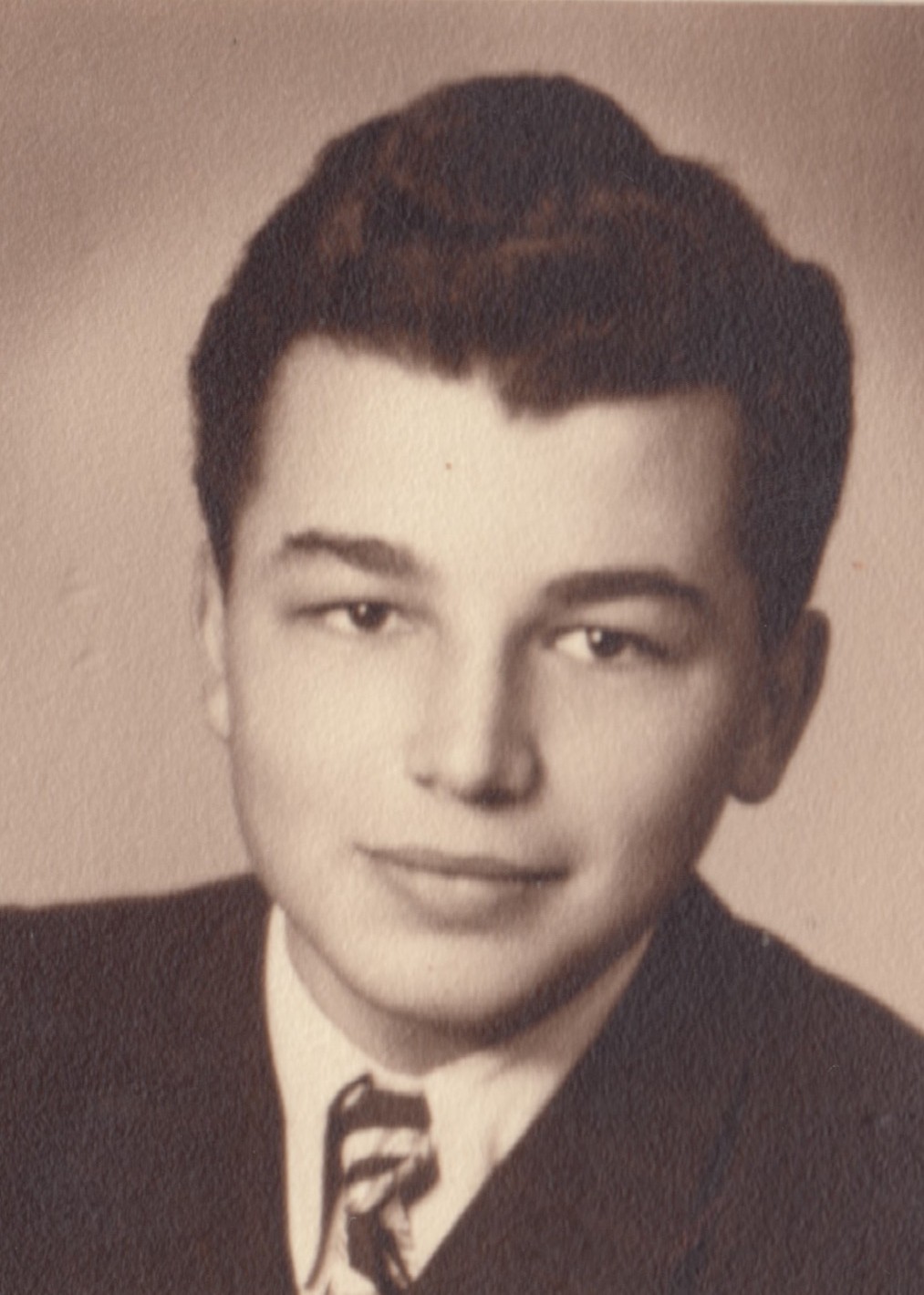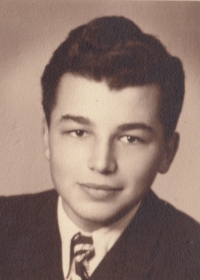The dictatorship of the proletariat was also at the maturita exam. An udarnik from the Vagonka company sat on the committee

Stáhnout obrázek
Jiří Marhan was born on 26 January 1933 in Komořany near Most. His parents were teachers. He grew up together with his younger sister Blanka in Uhlířské Janovice, where the family moved from the borderlands in 1936, fearing the growing German nationalism. It did not take long for his father Josef to help several Czech acquaintances who were fleeing the borderlands at the outbreak of the war. The war was interfering with everything that was going on. Jiří went to school at that time and experienced the bilingual report card, the devastating impact of Allied aerial bombs, or the fear of the fictional character Pérák that he experienced every time he walked through the woods. In September 1945, he entered the grammar school in Kolín. The maturita exam in 1951 was already conducted in a consciously communist style, with the phrase ‘class struggle’ dominating many of the topics. In October of the same year, he began studying at the University of Chemistry and Technology in Pardubice, but only after a month of work at the Nosek mine near Kladno. He also did his military training at the university. In 1956 he graduated and joined the Výzkumný ústav organických syntéz (VUOS) in Rybitví. Already at the maturita exam he was offered membership in the Communist Party of Czechoslovakia, the second time at the university, the third time at work. Each time he refused. The third refusal during the 1958 examinations threatened him with employment sanctions. However, thanks to his professional erudition, he was eventually able to stay. In 1961 he participated in a four-month military exercise near Česká Třebová, which was called in connection with the construction of the Berlin Wall. He enjoyed his work in the chemical field very much. During his professional career, he was involved in the construction of a top-class plant for the production of organic pigments in Rybitví. After the Velvet Revolution in 1989, he stayed at the research institute as head of department, worked in the laboratory, and lectured at the University of Chemistry and Technology. He also experienced the steep decline of the chemical industry in the 1990s, caused by political changes and different consumer demand. He retired in 1996 and wrote a publication on the history of VUOS Rybitví. In 2022 he lived with his wife in Pardubice.
